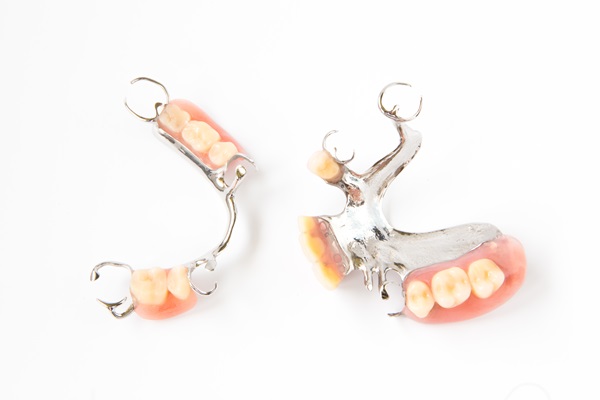Securely Replace Missing Teeth With Dental Implants

The introduction of dental implants has provided a solution to tooth replacement that goes beyond mere function to address the core of personal well-being. Loss of teeth has an impact on a lot more than just dental health — it impacts chewing, talking ability, and confidence. This is where dental implants come into play as a secure, long-lasting, and attractive option. This guide explores the benefits of dental implants, the process of restoring missing teeth, and quality of life.
An overview of dental implants
Dental implants mimic the appearance of natural tooth roots. They are made of strong, biocompatible titanium and provide a solid foundation for fixed replacement teeth. Their success is based on osseointegration, the biological process where the implant fuses with the bone to form a stable base for artificial teeth or crowns.
The actual tooth replacements (could be a crown, bridge, or denture) are custom-made to match the existing dentition in color, shape, and size in the patient. Their versatility differentiates dental implants from traditional solutions such as dentures or bridges. They can replace a single tooth, several teeth, or an entire dental arch. By mimicking the structure of natural teeth, implants help maintain oral stability and prevent jawbone deterioration, which is a common side effect of tooth loss.
The dental implant procedure
Opting for dental implants brings patients closer to getting their natural smiles back. The process begins with a comprehensive dental examination. The dentist will use diagnostic tools like X-rays and 3D imaging to evaluate the condition of the jawbone and surrounding oral structures. This initial evaluation determines whether a patient is suitable for dental implants. For instance, patients with low bone density might require a grafting procedure to get implants.
After assessment, the next part is where the implant is placed into the jawbone. This procedure is performed after administering local anesthetic for patient comfort. It involves the positioning of the implant for maximum osseointegration. The following healing period of a few months allows the implant to fuse with the bone.
After osseointegration is successful, an abutment is attached to the implant. This component is the critical link between the implant and final restoration. This meticulous process is completed when the custom-made crown is fitted onto the abutment. The result is a functional, attractive smile that demonstrates the efficacy and precision of dental implant technology.
Minimally-invasive procedure
Minimally invasive dental surgeries are becoming popular, aiming to decrease patient discomfort and accelerate recovery times. This includes innovations like flapless implant surgery, in which implants are placed without making an incision in the gum tissue. Also, the development of shorter and narrower "mini-implants" makes this procedure an option for patients who previously would not be candidates for traditional implants because of insufficient bone density.
Regenerative dentistry is another option in dental implantology. Techniques like bone grafting can regenerate lost bone and soft tissues. This procedure ensures the implant has enough support inside the jawbone. Although undergoing bone grafting extends the treatment timeline, the wait time is typically worth it.
Advantages of dental implants
Dental implants have many benefits over traditional tooth replacements. Their resemblance to natural teeth, in both appearance and sensation, is remarkable. These features enhance chewing and speaking functions, and consequently, the overall quality of life. Implants preserve facial structure and prevent bone loss, which often results from tooth loss.
Unlike dentures, which can slip or cause discomfort, implants offer a stable and comfortable fit. With an impressive success rate, dental implants provide a long-term, inexpensive solution that only requires the same care as natural teeth.
Maintenance and longevity
Dental implants require the same maintenance as natural teeth. Proper oral hygiene habits like brushing teeth and flossing are important to maintain implant health. Routine dental check-ups allow the dentist to monitor the implant and surrounding tissues. They will also check for issues and catch them before they become worse.
Lifestyle choices, such as avoiding tobacco use, are important for the success of the implant and the osseointegration process. With proper care, dental implants can last a lifetime. This dental restoration is an investment in oral health and wellness.
Final note
Dental implants are a long-lasting and secure solution for patients with missing teeth. They restore oral function and help maintain healthy bone structure as well as facial appearance. If you have missing teeth and need tooth replacement, contact our dentistry office today to schedule a consultation appointment.
Request an appointment here: https://sandimassedation.com or call San Dimas Family and Sedation Dentistry at (909) 305-2300 for an appointment in our San Dimas office.
Check out what others are saying about our dental services on Yelp: Dental Implants in San Dimas, CA.
Recent Posts
If you have ever critically damaged or lost a tooth and had it repaired, you probably had a dental implant set. A dental implant is a metal fixture installed by a dentist that fuses to the jawbone via a process called osseointegration. This allows for artificial teeth to be securely placed on top of it.…
Deciding to get dental implants can be nerve-racking and exciting at the same time. Knowing as much as you can about the procedure can help clear up any apprehension. These restorations are durable and lasting. Understanding what to do while talking and chewing will be helpful. If you want to learn some pointers about speaking…
A consistent oral hygiene routine is necessary for anyone who has dental implants. While tooth decay cannot affect implants themselves, the area still requires routine cleaning to prevent gum disease and even infection. Failure to do so can also cause staining of the prosthetic tooth and an unsightly appearance. If the tissues surrounding the implant…
Getting dental implants is an important choice in your goals for good oral health. This treatment is also a great way to restore your smile and feel good about your appearance again. If you compare implants to other tooth-replacement options, you will see the differences and benefits that implants offer. The process of getting implants…


